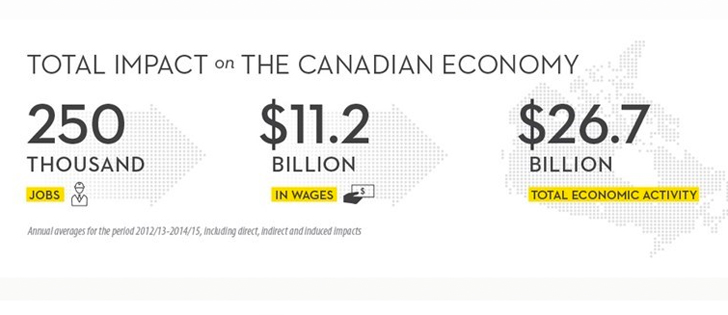There’s been a huge amount of newspaper ink spilt and radio time yakked-up by discussions about high-tech companies like Bombardier and (once important) Northern Telecom.
Yet canola, arguably as important to Canada as the aerospace industry, gets far less attention. In a 2016 report, Canada’s federal science ministry said aerospace provided a $28 billion economic impact and supported 211,000 jobs in 2015. That’s a big deal and explains why the national media and federal politicians pay a lot of attention to companies like Bombardier.
Read Also

VIDEO: Ag in Motion documentary launches second season
The second season of the the Western Producer’s documentary series about Ag in Motion launched Oct. 8.
But in a recently released study canola is claimed to have an almost identical impact, with $26 billion in economic activity and 250,000 jobs supported, a tripling of value in just one decade. You’d never get that sense of equivalence between the industries if you just followed national news, but that’s something farmers and agriculture are used to. Farming is often viewed as an old, dull and dusty industry that just clicks along in the countryside, while the bold technological innovations that will drive Canada’s future economy are happening in Canada’s cities.
At least recently, however, that view has seemed to become less monolithic and canola – finally – is getting its due.
On Prime Minister Justin Trudeau’s visit to China last fall canola was the biggest and most highlighted topic championed by the PM. I was honestly surprised by that, since I have become accustomed to farm and agriculture issues being kept in the shadows, as something that there’s not much public attention given to. Yet there was a high profile mission to China pushing canola talk out onto the front pages of the nation’s newspapers and into top stories on TV news.
That same coming-out-of-the-shadows feeling attended the visit of International Trade Minister Francois-Philippe Champagne to the Canola Council of Canada convention in Winnipeg last week. He was bubbling-over with enthusiasm about canola’s surging economic impact for Canada and described canola as “probably the biggest success story in our country.”
That’s entirely due and eminently true, but it’s quite unusual to see canola described as such outside of farm and agriculture circles. I’m hoping that will change, because farming and agriculture is the furthest thing we have in our society from a dull and traditional industry, with transformations of production and products occurring constantly. It’s great to see the federal government getting it, and there’s a chance Canada’s general public will start getting it too.
At the CCC convention a new travelling display about canola from the Canada Agriculture and Food Museum in Ottawa was unveiled. (See what it looks like in the video below with Brett Halstead of the Saskatchewan Canola Development Commission and Kelly Green of the Canadian Canola Growers Association.)
That exhibit will travel around Canada for the next five years giving ordinary Canadians a chance to see the bizarre story of canola, which didn’t exist 50 years ago and now employs a quarter of a million people. It’s just a small exhibition and won’t magically change the thinking of millions of Canadians, but with any luck it’s a sign that farming and agriculture are slowly coming out of the economic shadows and are beginning to be seen as the high-tech and innovative industries that they are.


















